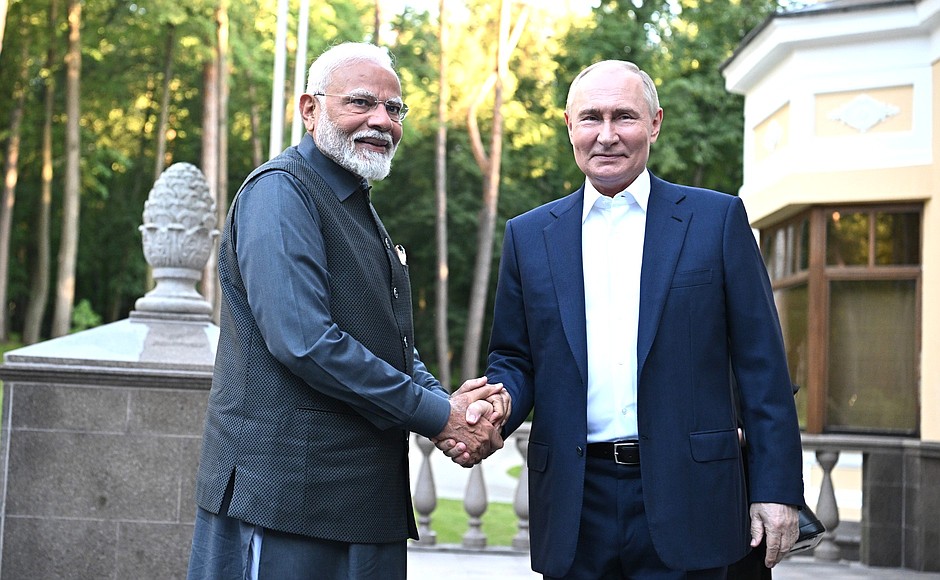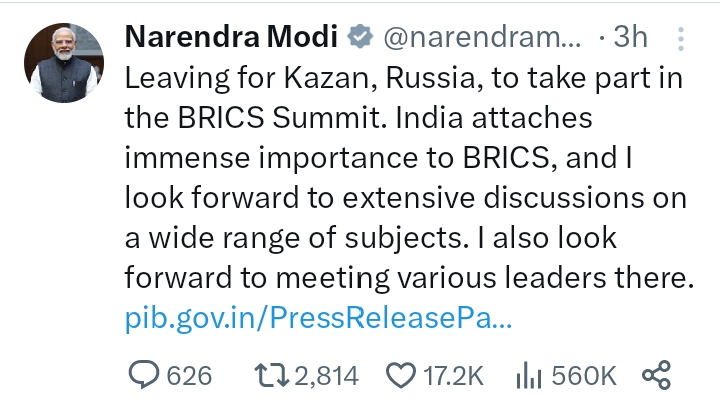Prime Minister Narendra Modi departed for Russia on Tuesday to participate in the BRICS Summit in Kazan, scheduled for October 22-24. This marks Modi’s second visit to Russia in 2024, following his attendance at the India-Russia annual summit in Moscow in July.

The summit, themed “Strengthening Multilateralism for Just Global Development and Security,” will provide a platform for leaders to discuss pressing global issues. Modi is expected to engage in bilateral meetings with BRICS counterparts and other invited leaders during the event.
In a post on X, Modi expressed, “Leaving for Kazan, Russia, to take part in the BRICS Summit. India attaches immense importance to BRICS, and I look forward to extensive discussions on a wide range of subjects.

“Among the anticipated discussions, Modi is expected to meet with Russian President Vladimir Putin. The Indian Prime Minister’s Office stated that India values close cooperation within BRICS as a crucial platform for dialogue on the global development agenda, economic cooperation, climate change, and building resilient supply chains.
China’s President Xi Jinping is also confirmed to attend, although a meeting between him and Modi has yet to be confirmed.
During Russia’s chairmanship, two key initiatives are expected: the integration of invited countries as full members and the development of a partner country model. Vinay Kumar, the Indian Ambassador to Russia, emphasized India’s commitment to economic cooperation as a foundational principle of BRICS.
This summit is significant, marking the largest meeting of its kind in Russia since the Ukraine conflict began. President Putin aims to showcase that efforts to isolate Moscow have been unsuccessful.
Meanwhile, the U.S. has downplayed the idea of BRICS as a “geopolitical rival” but remains concerned about Moscow’s influence amid ongoing conflicts. UN Secretary-General Antonio Guterres will also be attending, marking his first trip to Russia since April 2022, with a meeting scheduled with Putin.
The BRICS group, representing 45% of the world’s population and 35% of its economy (by purchasing power parity), is heavily influenced by China, which accounts for more than half of its economic strength.



